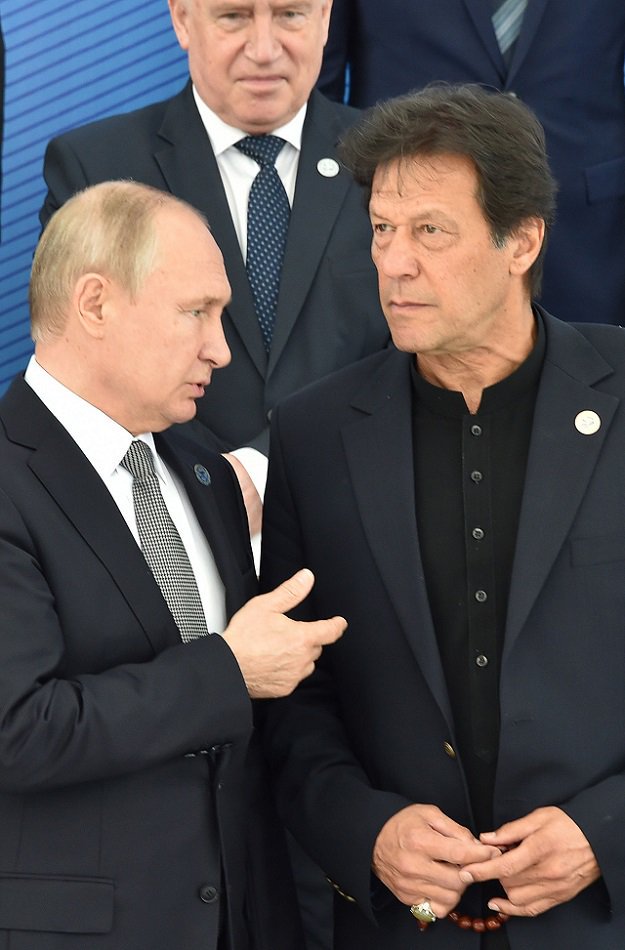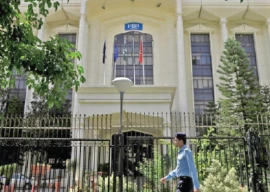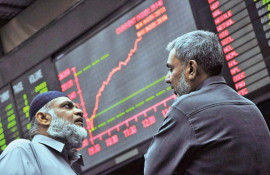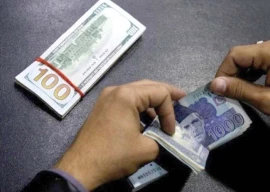
The Pakistani government has authorised its ambassador to Russia to sign the deal. Under the agreement, the Pakistani government will return $93.5 million to Russia within 90 days of the signing and clear pending exporters’ claims to the tune of $23.8 million as per the settlement agreements reached on October 6, 2016 and December 27, 2017.
The efforts to sign the deal with Russia were kicked off by the previous government of the PML-N government and the incumbent regime has decided to execute it.
Moscow has conveyed to Islamabad that it would invest $8 billion in Pakistan's energy sector and the Pakistan Steel Mills. But according to Russian law, it cannot invest in countries with which it has disputes.
The deal will enable Russia to invest in different sectors in Pakistan, officials told The Express Tribune.
According to the commerce division, in the 1980s the then USSR and its companies used to buy textile and other material from Pakistani companies. To ensure the smooth functioning of the barter trade, former USSR opened two bank accounts in the National Bank of Pakistan (NBP).
The funds in these accounts were deposited by the Economic Affairs Division (EAD) through the State Bank of Pakistan (SBP). Upon the disintegration of the Soviet Union, some exporters remained unpaid. In addition, there were also claims by Pakistani companies for unshipped goods as they had paid sea freight charges.
As the dispute prolonged, some Pakistani companies acquired stay orders from the Sindh High Court (SHC) restraining the NBP from transferring funds of the Russian banks held in its accounts since 1996, which amount to $104.93 million.
Many attempts were made in the past to resolve the dispute but they remained unsuccessful. The failure to timely resolve the dispute adversely affected relations between the two countries. An early amicable settlement between the two countries will thus pave the way for enhanced bilateral political, economic and diplomatic relations.
During the 3rd Pakistan-Russia Inter-Governmental Commission meeting held in Moscow from November 28 to 30 in 2015, both sides initiated an agreement between the two governments wherein Islamabad agreed to return $93.5 million within 90 days of the signing of the agreement.
Similarly, a committee headed by the then chairman of the Board of Investment held a meeting with the exporters and negotiated a settlement agreement on October 6, 2016.
However, despite the signing of the settlement agreement, the Pakistani companies did not withdraw their cases from the court and the settlement could not be implemented. In order to break the impasse, another meeting was held at the commerce division on October 27, 2017 which was attended by all stakeholders.
A new settlement agreement was reached between the government and three of the five claimants namely Tabani Group, Mercury Group and ABS Group.
Under this agreement, an amount of $19.38 million was to be distributed among the three exporters. However, the other two claimants, Fateh Industries/ Fateh Sports and Fateh Jeans, did not sign the settlement agreement and their suits remained pending in the SHC.
The commerce division then sought the help of the attorney general for Pakistan, who was subsequently able to persuade the two claimants to withdraw their cases by reaching an out-of-court settlement in line with the agreement reached on October 6, 2016.
The high court in its decision on October 4, 2019 allowed an application for the passing of a compromise decree as the parties had reached a settlement agreement outside the court.
This SHC also dismissed the case declaring it “withdrawn unconditionally” with the pending applications. Fateh Jeans was also persuaded but it did not agree to withdraw its cases.
Their cases have already been dismissed by SHC and no appeal has been filed so far by the company.
Therefore, the money in the two NBP accounts of Russia can be disbursed to settle the claims as per the agreements.
The amount maintained in the two accounts is sufficient pay off $93.5 million to Russia as well as clear the pending claims of exporters to the tune of $23.8 million.

1731550446-0/Polymarket-(1)1731550446-0-165x106.webp)

1729512368-0/liam-(8)1729512368-0-165x106.webp)
-(1)1718038311-0/SYDNEY-(1)-(1)1718038311-0-165x106.webp)












COMMENTS
Comments are moderated and generally will be posted if they are on-topic and not abusive.
For more information, please see our Comments FAQ